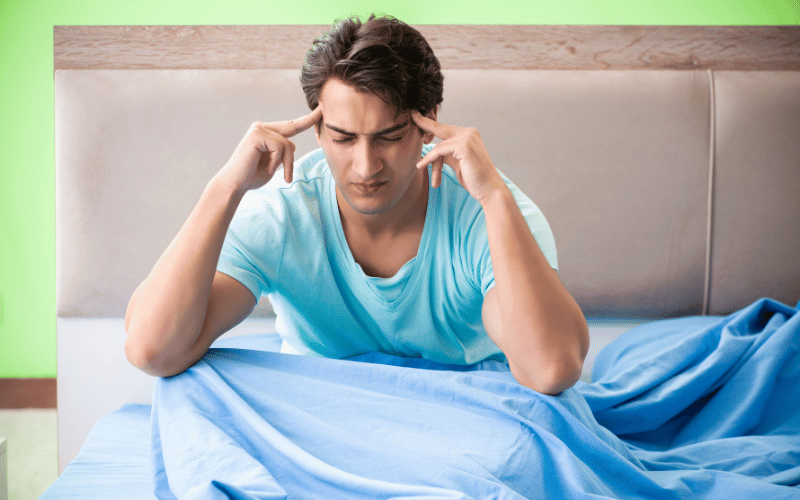Cause 6. Sleep Disturbances: The Connection Between Rest and Migraines

Embarking further into the complex tapestry of migraine triggers, we navigate to the crossroads of sleep and migraines. A sanctuary of rest and rejuvenation, sleep, when compromised, can act as a catalyst for chronic migraines.
The quality, quantity, and timing of sleep can significantly impact your migraine susceptibility. Insomnia, characterized by difficulty falling asleep, staying asleep, or experiencing non-refreshing sleep, can leave you vulnerable to migraines. As the clock keeps ticking, each hour of missed rest can prime your brain for a headache. It’s not just a correlation, but a connection backed by science. Insomnia can lead to decreased serotonin, a neurotransmitter that plays a critical role in pain perception, mood, and sleep.
Sleep apnea, a disorder where breathing stops and starts intermittently during sleep, is another potential migraine perpetrator. These breathing pauses can lead to lower oxygen levels, triggering a cascade of reactions that result in migraines. The resulting daytime sleepiness from sleep apnea can also compound stress and cognitive issues, further stoking migraines.
Disruptions in sleep patterns or chronobiology, such as shift work or jet lag, can also feed into the cycle of chronic migraines. This disruption, often tagged as ‘circadian rhythm sleep disorders,’ can interfere with your body’s internal clock, causing hormonal fluctuations and affecting neurotransmitter production.
However, the sleep-migraine relationship isn’t a one-way street. Migraines can impact sleep, too. Many people with migraines experience sleep disturbances, leading to a chicken-or-egg scenario. Is it the sleep disturbance triggering migraines, or is it the migraines causing sleep disturbances? (6)